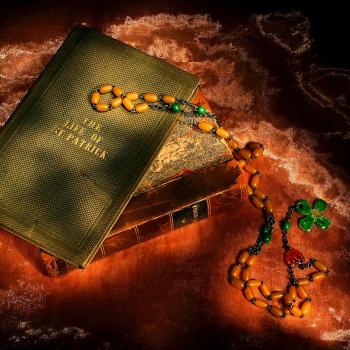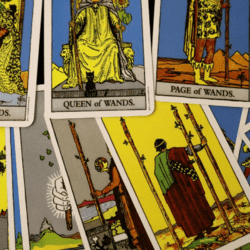One thought popular across Paganism is that we are all our own priests and priestesses: the idea that we do not need to look to anyone else to mediate between us and the divine or to tell us what to do. However, to reduce the priest/ess role down to dogma and god-bothering is to miss a lot of the point. Take a step back, consider what the work of a priest actually involves and then ask, no matter how much you know, can you do this for yourself?
1) Celebrate rituals and rites of passage. I know I can celebrate most of mine – though, clearly not my own funeral! But it’s really nice to be able to be a participant in ritual sometimes, not always making the whole event go.
2) Spiritual guidance. If I’m in the throes of a spiritual crisis or a bout of depression, I am the least useful person in my life on this score. I really benefit from input, especially from people who are not in the same mess but know how it goes.
3) Education. I learn a lot by experimentation, but without input from others, I would have spent years laboriously re-inventing the spiritual wheel. I am happy to have my learning pace increased by not always having to work everything out from scratch.
4) Choose a course of action. Yes, I am responsible for everything I do, but sometimes it’s lovely when someone else picks an area to be working on, a focus, a direction.
5) Comfort. One of the big roles of priests in other traditions is to comfort people in times of hardship and suffering. Again, the more trouble I am in, the less able I am to do this for myself.
6) Experience. A more experienced priest or priestess will have been through some of this before, or seen something like it. Simply having access to that experience can lighten my emotional load where struggling alone could not.
7) Inspiration and critique. Priests of many traditions, especially non-Pagan ones, will encourage you in the right direction and point out to you when you are disappearing up your own bottom or drowning in hypocrisy. That’s a really good thing to have, if done well.
None of this necessitates hierarchy. We can have priesthood status and provide these things for each other in distributed ways across communities. I might turn to one person for a herbal education and another for yoga, while they come to me for bardic training, or meditation, perhaps.
Priests and priestesses in other traditions do not hive themselves off and work in isolation with no one to watch their backs and make sure they aren’t just deluding themselves. So if we do think of ourselves as being our own priests and priestesses, it serves us to remember that we will still need other priests and priestesses, for community, and for those times when we really can’t do it for ourselves. It’s not about resisting authority, it’s that we all have human needs.

















